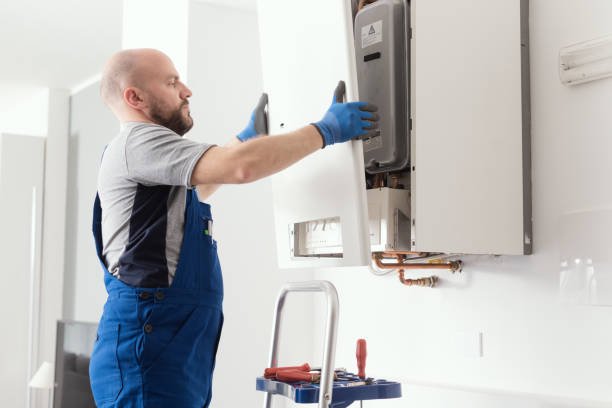With each passing year, heating systems get increasingly efficient, and a well-serviced, recent gas boiler is essential for reducing energy bills and keeping homes warm across London this winter.
For people struggling with energy bills or concerned about the potential costs they might have to pay for an upgrade, there are a few schemes available that can help them get upgrades to their heating and insulation for free or at a considerable discount.
One of the most substantial schemes is the Energy Company Obligation (ECO4), which requires medium and large energy suppliers to provide support for households on lower incomes who might be living in fuel poverty or at risk of doing so.
With fuel poverty continuing to be a major issue, the ECO is a major part of helping people get upgrades they otherwise could not afford, which could potentially include energy-efficient boilers.
How Does The Energy Company Obligation Work?
The Energy Company Obligation is a scheme that was launched in 2013, and over its four iterations has seen several changes to reflect both what fuel poverty means and the social responsibility major suppliers have to the most vulnerable customers they serve and earn money from.
The aim is to reduce fuel poverty, defined by the Office for National Statistics as people on low incomes who are paying an unreasonable amount of money to keep their homes warm, although how this is measured has changed over the years.
The most recent scheme, ECO4 from 2022 until 2026, is available to people living in social housing, as well as people who rent and also claim a qualifying benefit.
These include Housing Benefit, Universal Credit, Jobseeker’s Allowance, Working Tax Credit, Child Tax Credit, Tax Benefit and some forms of Pension Credit schemes.
People who qualify for the Warm Home Discount are likely to also qualify for the Energy Company Obligation, although this can vary depending on each supplier’s own Ofgem-approved eligibility system.
The home must also have an energy efficiency rating on the lower end of the rating system, with homeowners requiring an overall EPC of D, E, F or G, whilst renters in both private and social housing need a rating of E, F, or G.
Anyone who qualifies will either be contacted through their local council or energy supplier or can contact their local authority to see what schemes are in place.
They can also contact other energy suppliers even if they have a contract with a smaller supplier who does not qualify for the scheme, as there is no obligation to only get support from the same company that supplies them directly.
Can You Get A Free Boiler?
Their suppliers, if they are among the biggest in the country such as British Gas, EDF, Octopus Energy, E.ON and others, will be obligated to provide support to improve the energy rating of these properties.
These can and have included free upgrades and replacement boilers, paid for by the energy suppliers in a scheme typically managed by local councils and undertaken by local gas-safe contractors registered under the TrustMark scheme.
This typically requires rather major solutions, which alongside boilers or other energy-efficient heating, also include insulation underneath the floor, in the loft or in the wall cavity.
It can also include the installation of other methods of generating heat and energy, such as the installation of rooftop solar panels which can help reduce energy bills by allowing homeowners to generate electricity and use less from the National Grid.
These can include the installation of central heating for the first time in properties that have previously not had them installed, the installation of a storage heater and a connection to a district heating system in places where such a system is available.
It also includes heating controls and programming systems which allow for a greater management of when heating systems are on or off.
Other innovative measures may be available as well under the New Measures and Products system, but exactly what is available to you will vary by region.
It should be noted that depending on the scheme and the supplier, there may be some charges for complex parts of the installation even if the boiler itself is free.
Households can only apply for this as well if they live in England and Wales; Scotland has a separate scheme known as Warmer Homes Scotland that provides a similar level of support albeit with different qualifying factors.
Ultimately, you can get a new boiler for free if you qualify for the scheme, but even if you do not, an upgraded boiler can save you a lot of money on your energy bills.

